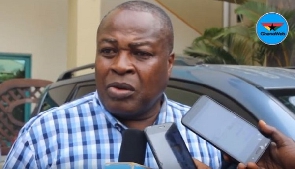Accra, July 2, GNA - The Pan-African Infrastructure Development Fund (PAIDF) was on Sunday launched at the ongoing 9th African Union Summit with an initial seed money of US$625 million raised from eight investors within the continent.
The initial investors included Ghana's Social Security and National Insurance Trust (SSNIT) with seed money of US$10 million, South Africa's Public Investment Corporation, The African Development Bank (AfDB), The Development Bank of South Africa and the Barclays Bank/ABSA Group. The rest were Metropolitan, Old Mutual Group and Standard Bank Group all from the southern part of Africa, all of which were either from South Africa or based in the southern Africa region, for which reason the fund was largely managed by personnel from South Africa.
The fund, the first of its kind, was a public/private sector initiative, conceived, put together and completely managed by Africans. It sets out to raise at least US$1.2 billion to serve as a financing platform for infrastructure development on the continent, such as would accelerate economic development of Africa and thereby improve the living standards of the continent's 816 million peoples.
The creation of the fund was also a major step taken by Africans towards having African solutions to African problems, which was what the AU summit and the proposed union government was all about, thereby stopping Africa from continuing as a net exporter of capital through investments and debt repayment.
Mr Tshepo Mahloepe, Chief Executive Officer of the PAIDF said the fund would be channelled towards four main infrastructure development areas across the continent, namely energy, transport, communication and ICT as well as water and sanitation.
He said the fund presented a useful investment opportunity for pension funds across the continent as a greater chunk of the seed money was raised from pension funds.
Mr Mahloepe noted that there were already 18 projects on the pipeline vying for funding from the PAIDF, saying that the strident investment procedures regarding the fund required that not more than 25 per cent would be invested in a particular region, not more than 20 per cent would be invested in a particular country and not more than 30 per cent in a particular sector.
"The 18 projects would require 4.2 billion dollars but by the close of this year we would have only 1.2 billion at our disposal so we intend to select the most viable projects and invest into those - already we are looking at two energy projects and one road project on the continent," he said.
He said over the next six months international financiers from the European Union and other western democracies would be expected to come on board and top the US$625 million up to the required US$1.2 billion. Mr Kwadwo Baah-Wiredu Ghana's Minister of Finance and Economic Planning noted that considering the US$658 billion dollars of Africa's annual investments in Asia, it was imperative to look at ways to channel some of that money into the PAIDF to support infrastructure development in Africa.
"We must also look at ways of re-channelling some of our foreign reserves into the fund to support our own development at home," he suggested.
He reminded the fund manager that there was a hydro energy potential in the Democratic Republic of Congo, which could generate at least 40,000 megawatts of electricity to serve the whole of the continent when fully developed at the cost of US$80 billion.
Nana Addo Dankwa Akufo Addo, Ghana's Minister of Foreign Affair, Regional Cooperation and NEPAD described the fund as an historic initiative through which Africa was showing to the international community that "instead of the endless pleas for handouts and gifts we are now paving the way to help ourselves from our own resources."
"This meeting is different from those in the past where we negotiate for hand outs from the international community - this time we are building our own source of funding for our development," he said. He noted that poverty on the continent was largely defined by the lack of adequate infrastructure in the individual states and across the continent, saying that the responsibility lied with Africans and nobody else to set the tone for Africa's development.
Nana Akufo Addo expressed the hope that from henceforth Africans would stop begging for alms and gifts from the west and take charge of their own development.
Ms Nkosazana Zuma, South African Minister of Foreign Affairs said the setting up of the fund communicated a clear message to the world that Africa was ready to take up the responsibility of its development into its own hands.
"The psychology is to use largely African savings managed by Africans to develop infrastructure across the continent, but we welcome investment from the international community," she said.
Mr J S Addo, Chairman of the SSNIT Board and former Governor of the Bank of Ghana noted that the fund was long overdue and that when the proposal was presented to the SSNIT board it did not take long for them to decide to support the fund. 02 July 07
Attention recipients, item 03 ends first cast.
Click to view details



Business News of Monday, 2 July 2007
Source: GNA
















